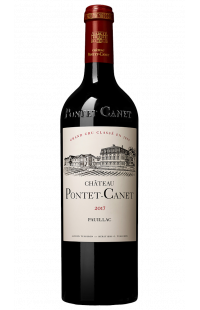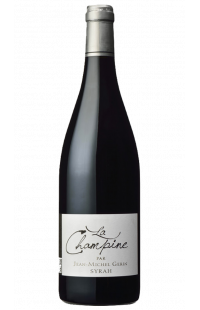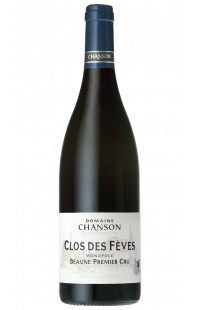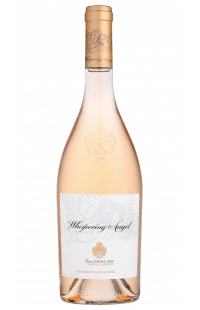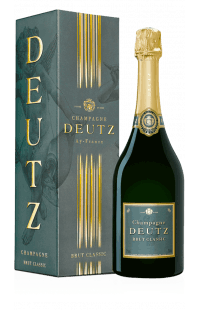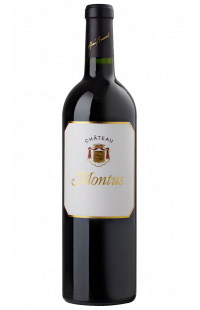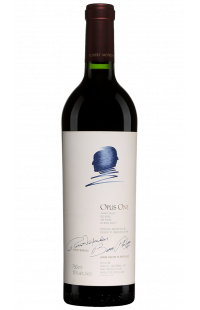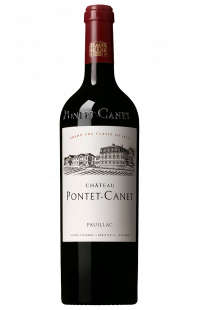- Menu
- All our wines
- Bordeaux
-
Rhône
-
Burgundy
- Rosés Wines
-
Champagne
- France
-
World
- PRIMEURS
- ORGANIC WINES
Clos de la Roche Wines
There is 1 product.
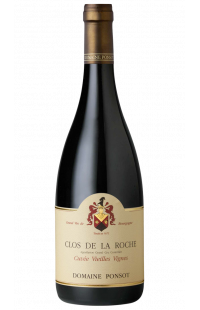
Domaine Ponsot : Clos de la Roche Grand Cru 2020
Burgundy - Clos de la Roche - Grand Cru - Red Wine -Available in
- Bottle (75cl)
- 735.00€ / bottleTASTING NOTES
Specifications
Clos de La Roche Wines: Power and Elegance at the Heart of Burgundy
Discover the history and characteristics of Clos de La Roche wines, a renowned Grand Cru from Burgundy celebrated for its power and elegance. Learn why these wines are among the best in the region.
The Clos de La Roche is an iconic Grand Cru from Burgundy, specifically from Morey-Saint-Denis. Produced from the Pinot Noir grape, it is renowned for its power, complexity, and elegance. This article explores the fascinating history of these wines, their unique characteristics, and their place in the Burgundian wine landscape.
History of Clos de La Roche Wines
Origins and Early Mentions
Clos de La Roche, a name that immediately evokes images of idyllic vineyards and exquisite wines, was first mentioned in 1420. However, viticulture in this region dates back much further to the Middle Ages. It was during this time that Cistercian monks, known for their viticultural expertise, played a crucial role in developing Burgundy's vineyards.
Development in the Middle Ages
During the Middle Ages, Burgundy established itself as a land of fine wines, thanks to the efforts of monks who implemented rigorous cultivation and winemaking methods. Clos de La Roche, with its unique soils and favorable climate, quickly became a favored site for producing high-quality wines.
The Rise in the 19th Century
The 19th century marked a renaissance period for Clos de La Roche. In 1851, François Charles Raveneau acquired the property and began producing superior quality wines. His efforts and dedication helped Clos de La Roche stand out and gain popularity among wine enthusiasts.
The Role of François Charles Raveneau
François Charles Raveneau played a pivotal role in the history of Clos de La Roche. His acquisition of the property and innovative winemaking techniques established Clos de La Roche as one of the most respected Grand Crus in the region. His vision and expertise are still revered today.
Modern Evolution
Today, Clos de La Roche continues to evolve and adapt to new technologies and contemporary challenges such as climate change. Modern vintners, while respecting age-old traditions, incorporate modern practices to maintain and enhance wine quality.
Terroir of Clos de La Roche
Location and Geography
Clos de La Roche is situated in Morey-Saint-Denis, a charming village in the Côte de Nuits in Burgundy. The region benefits from varied topography with well-exposed slopes and a microclimate favorable to viticulture.
Soils and Climate
The soils of Clos de La Roche are primarily composed of limestone and marl, providing excellent drainage and an ideal structure for cultivating Pinot Noir. The continental climate, with hot summers and cold winters, allows optimal grape maturation.
Terroir's Influence on the Wine
The unique terroir of Clos de La Roche imparts unparalleled complexity and depth to the wines. The mineral-rich limestone soils, combined with the continental climate, produce balanced wines that blend power and elegance.
Winemaking at Clos de La Roche
Traditional Techniques
Winemaking at Clos de La Roche adheres to traditional methods passed down through generations. Manual harvesting, fermentation in open vats, and aging in oak barrels are essential steps in producing quality wines.
Modern Innovations
While maintaining traditional practices, vintners at Clos de La Roche embrace modern innovations to enhance wine quality. Sustainable viticulture practices, the use of advanced technologies for vineyard monitoring, and scientific approaches to winemaking are integral to current production.
Characteristics of Clos de La Roche Wines
Aromatic Profile
Clos de La Roche wines are distinguished by a complex aromatic profile. They offer aromas of red and black fruits, flowers, spices, and earthy notes that develop over time.
Structure and Texture
On the palate, the wines are powerful and elegant, with a well-defined tannic structure and a silky texture. This unique combination gives the wines the ability to age gracefully in the bottle.
Aging Potential
Clos de La Roche is renowned for its exceptional aging potential. The best vintages can mature over decades, developing even more complex and nuanced aromas and flavors with time.
Emblematic Producers
Historical Estates
Among the emblematic producers of Clos de La Roche are Domaine Ponsot and Domaine Dujac. These estates have played a crucial role in the international reputation of the Grand Cru.
New Players
New producers, bringing fresh perspectives and innovative techniques, are also emerging on the scene. They contribute to the dynamism and continual evolution of Clos de La Roche.
Comparison with Other Grand Crus
Clos Saint-Denis
Clos Saint-Denis, also located in Morey-Saint-Denis, shares a geographical proximity with Clos de La Roche but exhibits distinct characteristics. It is often perceived as more delicate and floral.
Clos des Lambrays
Clos des Lambrays, another Grand Cru from the region, is renowned for its finesse and aromatic complexity. Compared to Clos de La Roche, it offers a different but equally captivating tasting experience.
Clos des Ormes
Clos des Ormes, though less known, also deserves mention. Its wines, like those of Clos de La Roche, present a beautiful structure and notable aging potential.
How to Taste a Clos de La Roche
Choosing the Right Glass
To fully appreciate a Clos de La Roche, it is essential to choose the right glass. A large red wine glass with a wide bowl allows the complex aromas to fully express themselves.
Serving Temperature
The ideal serving temperature for Clos de La Roche is between 16 and 18 degrees Celsius. This temperature range highlights the wine's aromas and structure.
Food and Wine Pairings
Clos de La Roche pairs perfectly with refined dishes such as roasted duck, game, and mushroom-based dishes. Food and wine pairings play a crucial role in enhancing the tasting experience.
Remarkable Vintages
Exceptional Years
Certain vintages of Clos de La Roche stand out for their ideal climatic conditions and exceptional grape quality. Notable recent vintages include 2005, 2010, and 2015, known for their extraordinary quality.
Vintage Comparisons
Comparing vintages allows appreciation of the nuances and variations from year to year. For example, hot vintages like 2018 produce richer and more opulent wines, while cooler years like 2014 offer more elegant and acidic wines.
Vintages to Avoid
While Clos de La Roche is generally synonymous with quality, some less favorable years may produce wines below expectations. It is important to consult specialized guides to avoid less successful vintages.
Investing in Clos de La Roche
Market Value and Trends
Investing in Clos de La Roche can be a wise decision. The demand for this Grand Cru is steadily increasing, making it a potentially lucrative investment.
Investment Tips
To maximize returns, it is recommended to focus on exceptional vintages and store bottles under optimal aging conditions.
The Impact of Climate Change
Effects on the Vineyard
Climate change significantly impacts the vineyards of Clos de La Roche. Temperature fluctuations and extreme weather events pose challenges to vintners.
Vintners' Adaptations
In response to these challenges, vintners adopt more sustainable and resilient practices. Reasoned irrigation, selection of resistant rootstocks, and adjustments in winemaking techniques are common adaptations.
Wine Tourism in Morey-Saint-Denis
Vineyard Tours
Clos de La Roche attracts many wine enthusiasts. Vineyard tours allow visitors to discover the secrets of producing this Grand Cru and to taste wines on-site.
Tastings and Events
Morey-Saint-Denis regularly hosts tastings and wine-related events. These occasions offer a complete immersion into the world of Burgundian wines.
Local Accommodations
For those wishing to extend their stay, Morey-Saint-Denis offers various accommodations ranging from picturesque bed and breakfasts to charming hotels, ensuring an authentic and comfortable experience.
Frequently Asked Questions
What makes Clos de La Roche unique? Clos de La Roche is unique due to its exceptional terroir, traditional winemaking techniques, and remarkable aging potential. Its aromatic complexity and tannic structure make it highly appreciated by connoisseurs.
How to recognize a good vintage? A good vintage of Clos de La Roche is characterized by rich aromatics, balanced structure, and high aging potential. Exceptional years like 2005 and 2010 are good benchmarks.
What are the best food and wine pairings? Clos de La Roche pairs excellently with refined dishes such as roasted duck, game, and mushroom-based dishes. These pairings enhance the aromas and structure of the wine.
How long can you keep a Clos de La Roche? Clos de La Roche has an exceptional aging potential. The best vintages can age for decades, developing more complex and nuanced aromas and flavors over time.
How to visit the estates in Morey-Saint-Denis? To visit estates in Morey-Saint-Denis, it is recommended to make appointments in advance. Many estates offer guided tours and tastings to discover the secrets of Clos de La Roche production.
Conclusion
Clos de La Roche is a Grand Cru from Burgundy that stands out for its power, complexity, and elegance. Its rich history, unique terroir, and traditional winemaking techniques make it one of the region's most sought-after wines. Whether you are a wine enthusiast or an investor, Clos de La Roche offers an unforgettable experience and exceptional aging potential.
